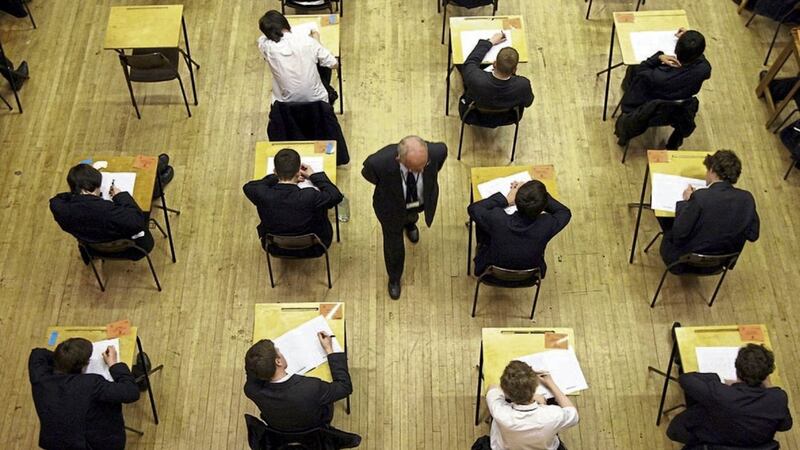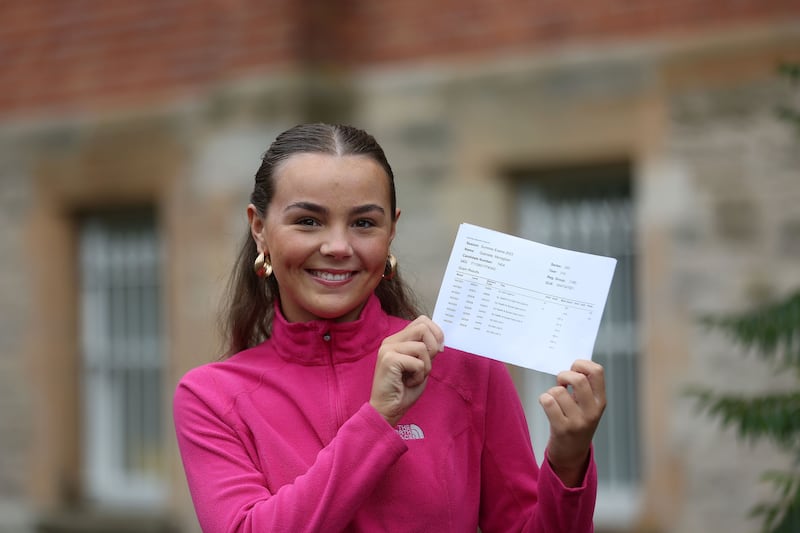The head of Northern Ireland's examinations board has apologised in the row over the grading of A-level and GCSE results.
Education minister Peter Weir made a U-turn away from an algorithm used in lieu of the exams cancelled earlier this summer after more than a third of A-level grades were reduced from teacher estimates.
GCSE grades awarded earlier this week were based on teacher estimates, and A-level results were reissued today, also based on teacher estimates.
[ READ MORE: Teachers' predictions bring record GCSE resultsOpens in new window ]
Justin Edwards, chief executive of examinations board CCEA, has now apologised and vowed lessons will be learned.
He told the Stormont education committee today the original arrangements aimed to take account of students' academic attainment while maintaining standards.
But he added: "It's clear that despite our best efforts the alternative arrangements may have led to greater concern amongst students, parents and teachers during an already stressful time, and for this I apologise on behalf of CCEA to all students, young people, parents, teachers and principals.
"The lessons learned from this process will feed into how such circumstances are dealt with in the future and to ensure that mistakes aren't repeated."

MLAs pressed Mr Edwards over preparations for next year's exams.
The CCEA chief said the hope is for exams to be taken by pupils as usual.
He added: "It's clear that where possible we need to return to examinations and that would be our aspiration, but I think that we need to consider adjustments to those examinations across subjects for different reasons, both the health reason and to consider the burden alleviation.
"The exceptionality of this year was the decision to stop all exams and all testing, which was the challenge that we all faced which then required these alternative arrangements.
"I think in that longer term view of how we would learn lessons from this and approach that future years scenario, we do have consider that if we in any way use teacher judgments, how do we maintain some standardisation.
"I am conscious that statistical standardisation shouldn't feature in some of that thought, that we should move to moderation or validation. But I think that is a longer term piece of work and at the moment we really need to focus on what adjustments do we need to make to qualifications immediately."








